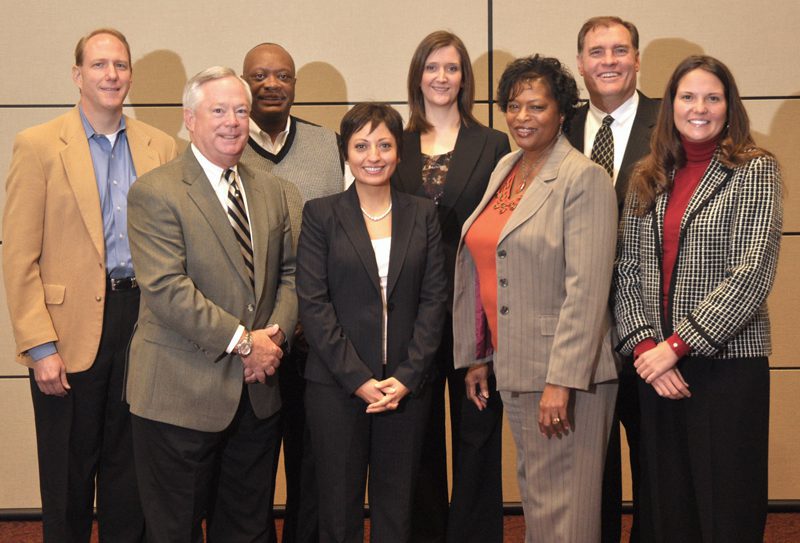Team Nia (pronounced Knee-ah; means “purpose” in Swahili) launched an initiative to help local parks and institutions facilitate access to recreation opportunities and services for individuals and families with limited English proficiency.
Background
The size of the international community is one of Greenville’s prized assets; however, the growth of this population has also challenged the Greenville community to provide services to non-English speakers and immigrants. Greenville currently lacks the infrastructure to adequately serve and/or communicate with the non-English-speaking community.
The Need
Latinos account for over 63% of the international community in Greenville. Since 1990, the Latino population has increased 866% and is expected to continue to grow. As of 2008, there were over 31,500 Latinos living in Greenville County, or over 7% of the population. Their inability to read or understand English often leads to their isolation, as they are often reluctant to visit places where they can’t understand signs and rules. 58% of the Latino population does not speak English well or almost not at all (Census).
Community Opportunity
As a community, Greenville has a remarkable opportunity to help the growing Spanish-speaking immigrant population integrate into our society by creating channels of communication and fostering opportunities for interaction with the local community. With this broader goal in mind, Team Nia partnered with the City of Greenville, Greenville County Recreation District, the City of Greer and Riley Institute’s award-winning organization ACCH (Alliance for Collaboration with the Hispanic Community) to work collaboratively on driving the Spanish-language translation of signs at several area parks. The project focused on the Greenville Zoo, Greenville County’s Herdklotz Park and Greer City Park. ACCH donated translation of over 40 directional signs, 21 animal descriptions and the main Zoo brochure (over 3,200 words!) The funding for printing of signs and brochures was provided by AT&T, the United Way, and the Greenville Hospital System.
Positive impact of this project
Through this initiative, Spanish-speaking individuals will feel empowered and welcomed in their community. It will also facilitate integration. Visiting parks and interacting with the local community will enable children of Hispanic/Latino descent to feel part of this community and to grow as well-rounded individuals and become productive members in our society. Another benefit is that native English-speaking children will learn to see other languages as a normal fact of life. Most importantly, the model created and developed by Team Nia can be easily replicated to bridge the language gap with other international communities.
Team Nia launched an initiative to help local parks and institutions facilitate access to recreation opportunities and services for individuals and families with limited English proficiency. The size of the international community is one of Greenville’s prized assets; however, the growth of this population has also challenged the Greenville community to provide services to non-English speakers and immigrants. Greenville currently lacks the infrastructure to adequately serve and/or communicate with the non-English-speaking community. Latinos account for over 63% of the international community in Greenville. Since 1990, the Latino population has increased 866% and is expected to continue to grow. Their inability to read or understand English often leads to their isolation, as they are often reluctant to visit places where they can’t understand signs and rules. Team Nia partnered with the City of Greenville, Greenville County Recreation District, the City of Greer and Riley Institute’s award-winning organization ACCH (Alliance for Collaboration with the Hispanic Community) to work collaboratively on driving the Spanish-language translation of signs at the Greenville Zoo, Greenville County’s Herdklotz Park and Greer City Park. Through this initiative, Spanish-speaking individuals will feel empowered and welcomed in their community. It will also facilitate integration. Visiting parks and interacting with the local community will enable children of Hispanic/Latino descent to feel part of this community and to grow as well-rounded individuals and become productive members in our society. Another benefit is that native English-speaking children will learn to see other languages as a normal fact of life. Most importantly, the model created and developed by Team Nia can be easily replicated to bridge the language gap with other international communities.
